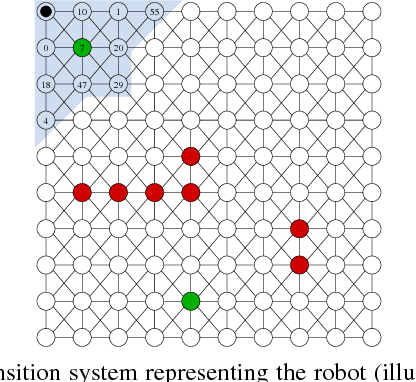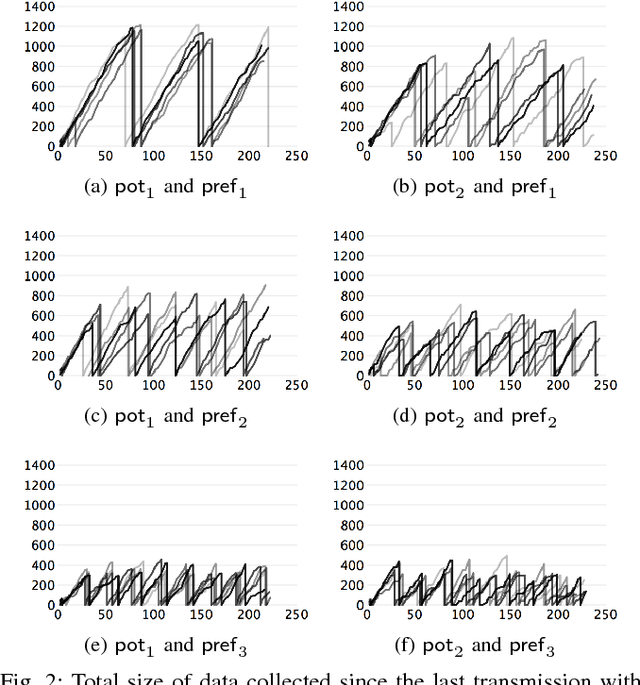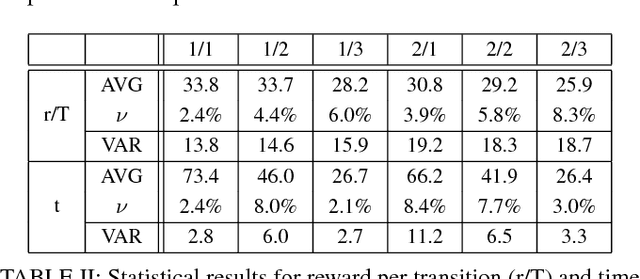Attraction-Based Receding Horizon Path Planning with Temporal Logic Constraints
Paper and Code
Aug 29, 2012



Our goal in this paper is to plan the motion of a robot in a partitioned environment with dynamically changing, locally sensed rewards. We assume that arbitrary assumptions on the reward dynamics can be given. The robot aims to accomplish a high-level temporal logic surveillance mission and to locally optimize the collection of the rewards in the visited regions. These two objectives often conflict and only a compromise between them can be reached. We address this issue by taking into consideration a user-defined preference function that captures the trade-off between the importance of collecting high rewards and the importance of making progress towards a surveyed region. Our solution leverages ideas from the automata-based approach to model checking. We demonstrate the utilization and benefits of the suggested framework in an illustrative example.
 Add to Chrome
Add to Chrome Add to Firefox
Add to Firefox Add to Edge
Add to Edge